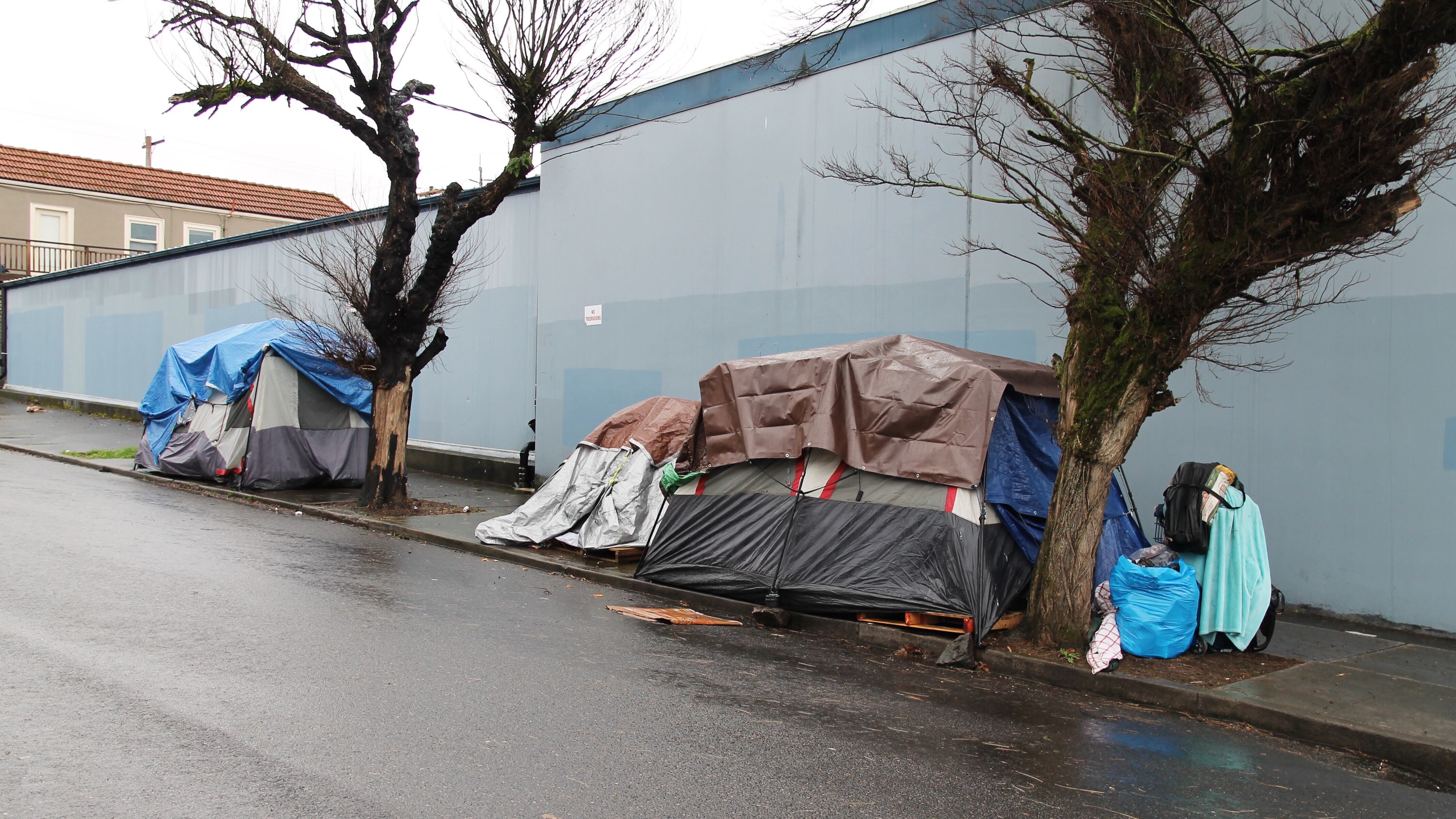The day after the regional government's $40 million mix-up on a proposed homeless services measure, Metro Council President Lynn Peterson pledged to work toward a $250 million-a-year measure, according to multiple attendees of a Feb. 19 meeting.
"She opened [the] meeting with the statement, 'I think it is clear that $250 million is the number we need. The question is how do we get there?'" says Katrina Holland, chair of the advisory committee of Here Together, the coalition of advocates and nonprofits pushing for the measure.
On Tuesday, Metro had unexpectedly announced a staff recommendation to decrease the measure to $175 million a year. But Metro's proposal for taxes—a marginal tax on income above $250,000 for couples or $125,000 for individuals—would raise only $135 million a year, Metro said late Tuesday.
Both numbers drew criticism from the advocates who have been pushing for the $250 million-a-year measure.
At a meeting on Wednesday, held at the Portland Business Alliance, Peterson said she would support a $250 million-a-year measure for homeless services, according to multiple attendees. The meeting included representatives of Metro, the three counties, the city of Portland, the Portland Business Alliance and some business leaders, including representatives from Columbia Sportswear.
"This was good news to our ears because we were unclear why, with all the discussions we had around revenue mechanisms, $135 million was a number proposed [Tuesday]," Holland adds. "Everyone in the coalition—reps from all three counties, service providers, folks with lived experience, PBA, program administrators, and HereTogether board and staff—agreed long ago that $250 million is the number necessary to make the progress that the metro region needs on the homelessness front. Anything less (and certainly $135 million) jeopardizes Metro's chances of success."
The renewed commitment to a larger measure appeared to win praise from other attendees, who were unwilling to discuss what exactly Peterson committed to.
- “Addressing homelessness is the mayor’s top priority,” says Portland Mayor Ted Wheeler’s spokesman Tim Becker. “We appreciate that Metro is working to ensure adequate resources to make progress.”
- “I have appreciated being at the table with Metro, the business community, our regional partners and key community stakeholders throughout this process,” says Clackamas County Chair Jim Bernard. “This collaborative opportunity to reduce homelessness is unprecedented. I expect we will move forward on this important issue.”
- “We had an incredibly collaborative meeting at our offices yesterday where a diverse set of stakeholders met to review options in finding agreement,” says Andrew Hoan, PBA president and CEO. “There is continued intent to find a successful funding option that will provide $250 million a year for homeless services, something our region desperately needs….We remain at the table and engaged in this rapidly developing discussion and thank Metro President Lynn Peterson for convening yesterday’s meeting.”
Despite Peterson's statements at the meeting, Metro officials declined to officially confirm the measure would be $250 million a year, citing Tuesday's $40 million mix-up as reason for caution.
"A variety of options are on the table to ensure there's enough funding to meaningfully address our region's homelessness crisis," says Metro Council spokesman Nick's Christensen. "The goal remains the same: Provide the services people need to ensure that every person currently experiencing chronic homelessness can get off the streets, and provide the services needed to those on the brink of homelessness to keep them in stable housing."
Speaking as Peterson's spokesman, Christensen says: "The need is 250 [million dollars a year], and she wants the measure to get as close to 250 as we can."
It's unclear whether Metro will pair the 1 percent marginal tax rate with other taxes such as a business license fee, or consider a 2 percent tax on high-income households. (A bill in the Oregon House to allow Metro to impose a 2 percent income tax for this purpose is expected to get a vote on the House floor tomorrow.)
A vote by Metro Council to put the measure on the ballot was delayed from today until at least Tuesday.

